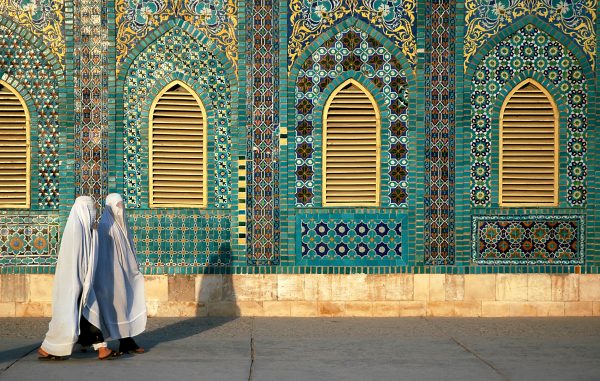By Amina Zurmati and Qudratullah Zurmati
Copyright thediplomat

Among Afghans, there is a saying: “A woman can only be defeated by a woman.” In today’s Afghanistan, this expression takes on a painfully literal meaning. With women and girls barred from schools, workplaces, and public spaces, the enforcement of these restrictions extends beyond Taliban men. Women aligned with the Taliban – as wives, daughters, and inner circle members – have become active participants in silencing their own gender. The emergence of Taliban women as agents of the regime’s brutal ideology is stark and deliberate. They are not passive followers; they actively collaborate – reporting, policing, and suppressing Afghan women who dare to dream of freedom. At a time when millions of Afghan girls are denied education and women are erased from public life, the female face of oppression presents a cruel paradox: women who legitimize and defend the very system that silences their sisters. Understanding this paradox means recognizing that Taliban women willingly uphold and enforce the regime’s harsh ideology, fully embracing the strict roles assigned to them. Their conscious collaboration intensifies, rather than diminishes, the impact of their actions. One activist who protested in the early years of the Taliban’s return said: “Rebellious Afghan women can be beaten to death by Taliban men, but we will never be silenced – until Taliban women rise against us. That betrayal wounds deeper than any lash.” She described how women posing as allies infiltrated their circles, reporting safe houses and protest networks to authorities. “We never faced such betrayal before,” she recalled. Another activist shared chilling words from Taliban-aligned women: “We are not even considered women in their eyes. They claim to be the only true and perfect version of womanhood – pure and pious – while branding us as unclean and corrupt. To them, we cannot be cleansed or reformed, only extinguished, so their ‘purity’ is uncontaminated.” Taliban women see themselves not as sisters but as a separate, superior species – justifying exclusion, silencing, and even death for others who do not conform. The Taliban’s state machinery amplifies this betrayal. The Ministry for the Propagation of Virtue and the Prevention of Vice, notorious for policing morality, enlists women as informants and enforcers. Under the “vice and virtue” order – a rigid code regulating dress, behavior, and social interaction – women monitor other women, reporting even the smallest infractions. Taliban women follow female doctors, teachers, and aid workers in hospitals, schools, and madrassas, resulting in dismissals. They actively identify women running underground or online classes and push to have these initiatives stopped. On social media, they track Afghan women using digital platforms to learn or connect, forwarding names to authorities. Even women employed by U.N. agencies and NGOs – often their families’ sole breadwinners – have been forced out under orders justified and enforced in part by Taliban women. When many women sought to continue working remotely, the Taliban responded by tightening restrictions on internet access. The recent internet ban represents not only a new level of repression but also a deliberate assault on Afghan women’s last remaining lifeline. By cutting digital access, the Taliban aim to silence women’s voices, dismantle online education networks, and block their ability to engage with international allies. This is more than censorship – it is a calculated attempt to erase Afghan women from global visibility and sever their connection to hope, opportunity, and solidarity beyond Afghanistan’s borders. A 16-year-old girl, barred from school and forced into online classes, summed it up painfully: “Our existence is not acceptable to Taliban men. But to Taliban women, even our breath is unbearable.” These measures reveal not mere regulation but a declared war on women. By willingly enforcing these restrictions, Taliban women deliver the regime’s message: Afghanistan has no place for independent, educated, or working women. This is the ultimate betrayal of sisterhood. Afghan women suffocate under a patriarchal regime and are strangled by those who should be their allies. History will remember Taliban women not as victims but as collaborators who weaponized their gender against their own. Yet in the face of such betrayal, Afghan women continue to resist, educate, and protect the fragile threads of freedom that remain. The world cannot ignore this oppression. Support for Afghan women must go beyond expressions of sympathy and translate into sustained, concrete action. Governments, NGOs, and multilateral organizations must amplify Afghan women’s voices through international media; support underground and online education programs; pressure international agencies to protect women’s rights defenders; and hold the Taliban regime – including its female enforcers – meaningfully accountable for violations. Sanctions, aid, diplomatic engagement, and public exposure must be tied directly to the protection and promotion of women’s rights. The stakes are immense: inaction risks erasing an entire generation of Afghan women and girls, undermining decades of struggle and resilience. Afghan women’s courage offers hope, but that hope will flicker and fade unless steadfast allies step forward to support them through advocacy, protection, and empowerment initiatives – always centered on listening to and elevating their leadership. The international community cannot delay; Afghan women are counting on it.



